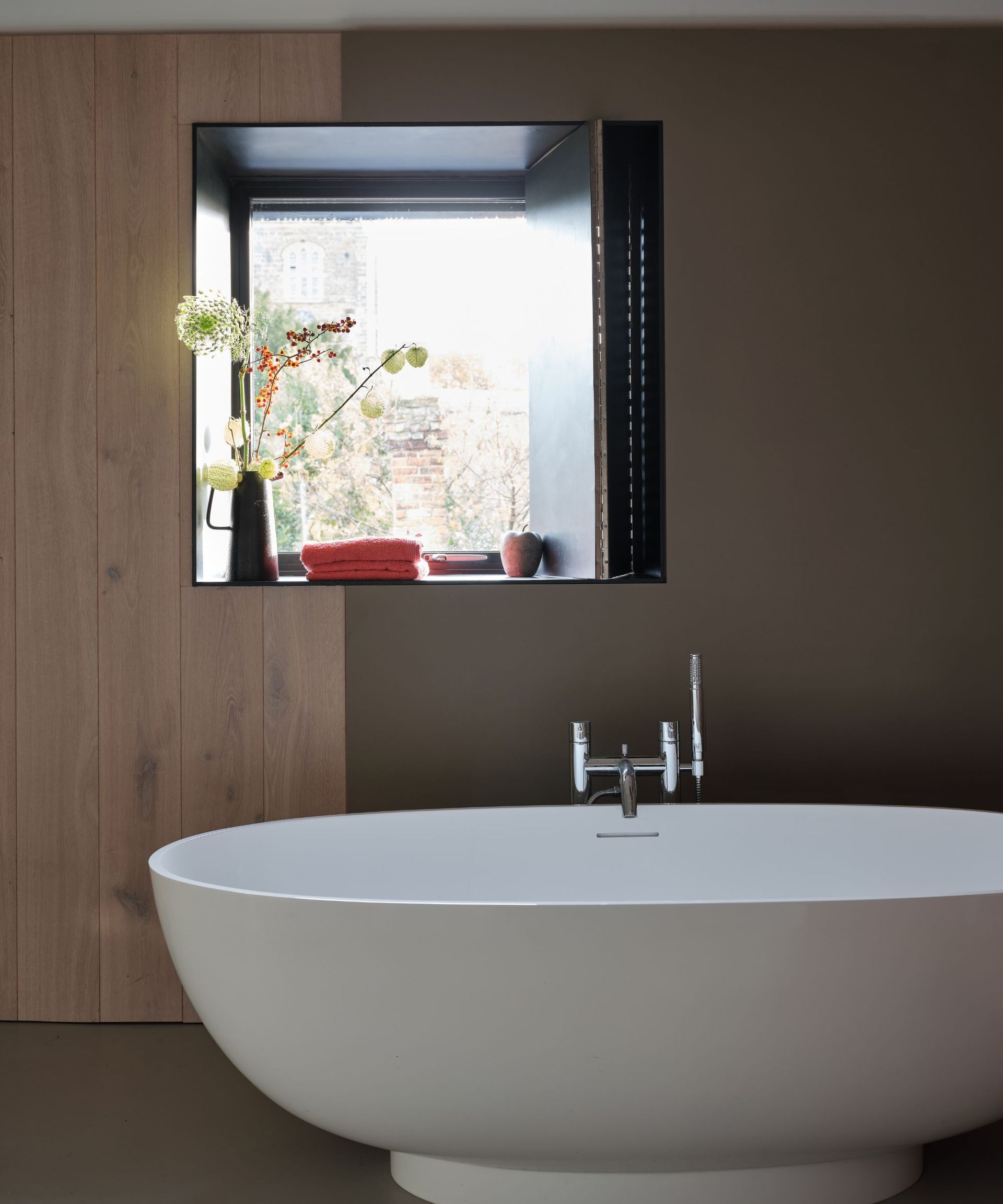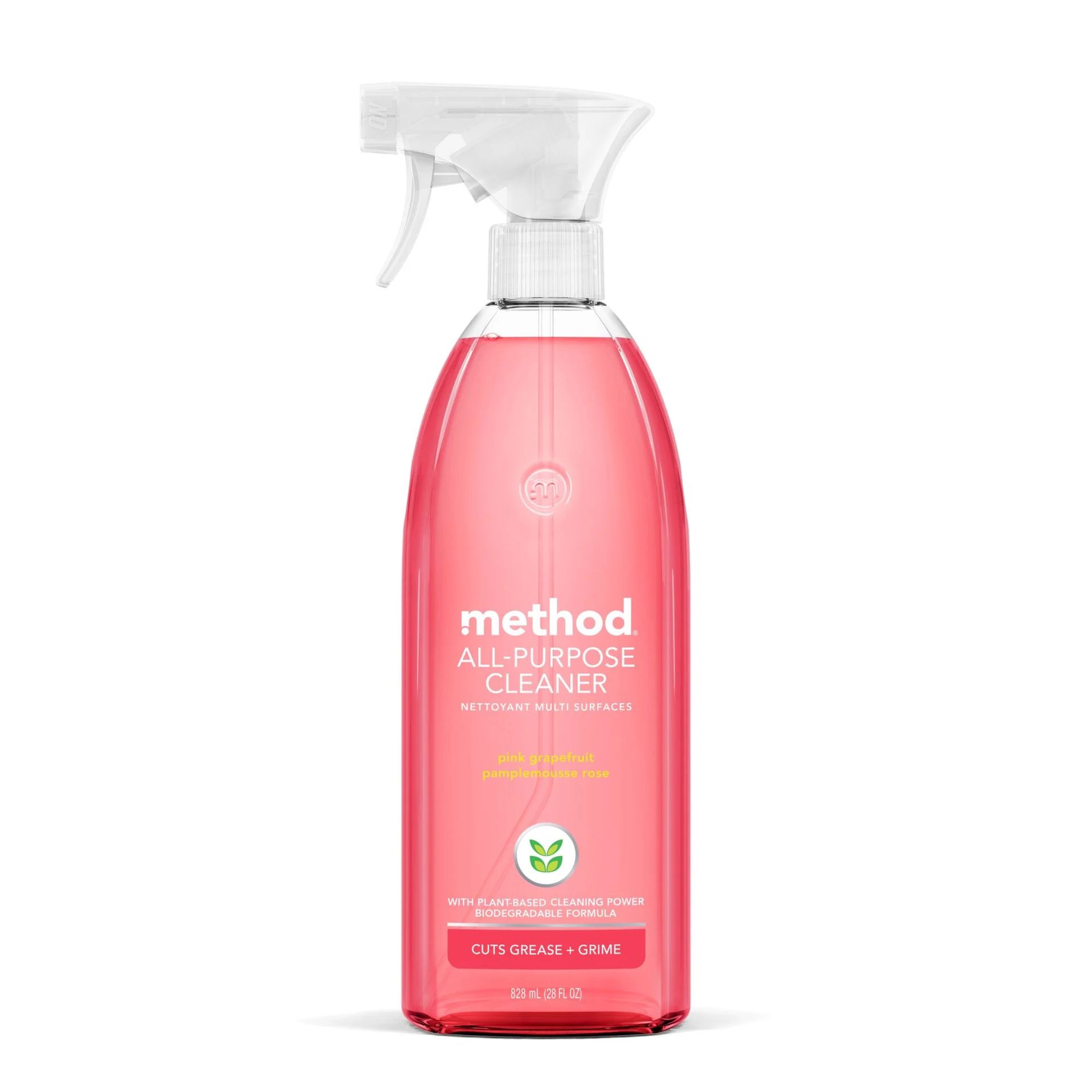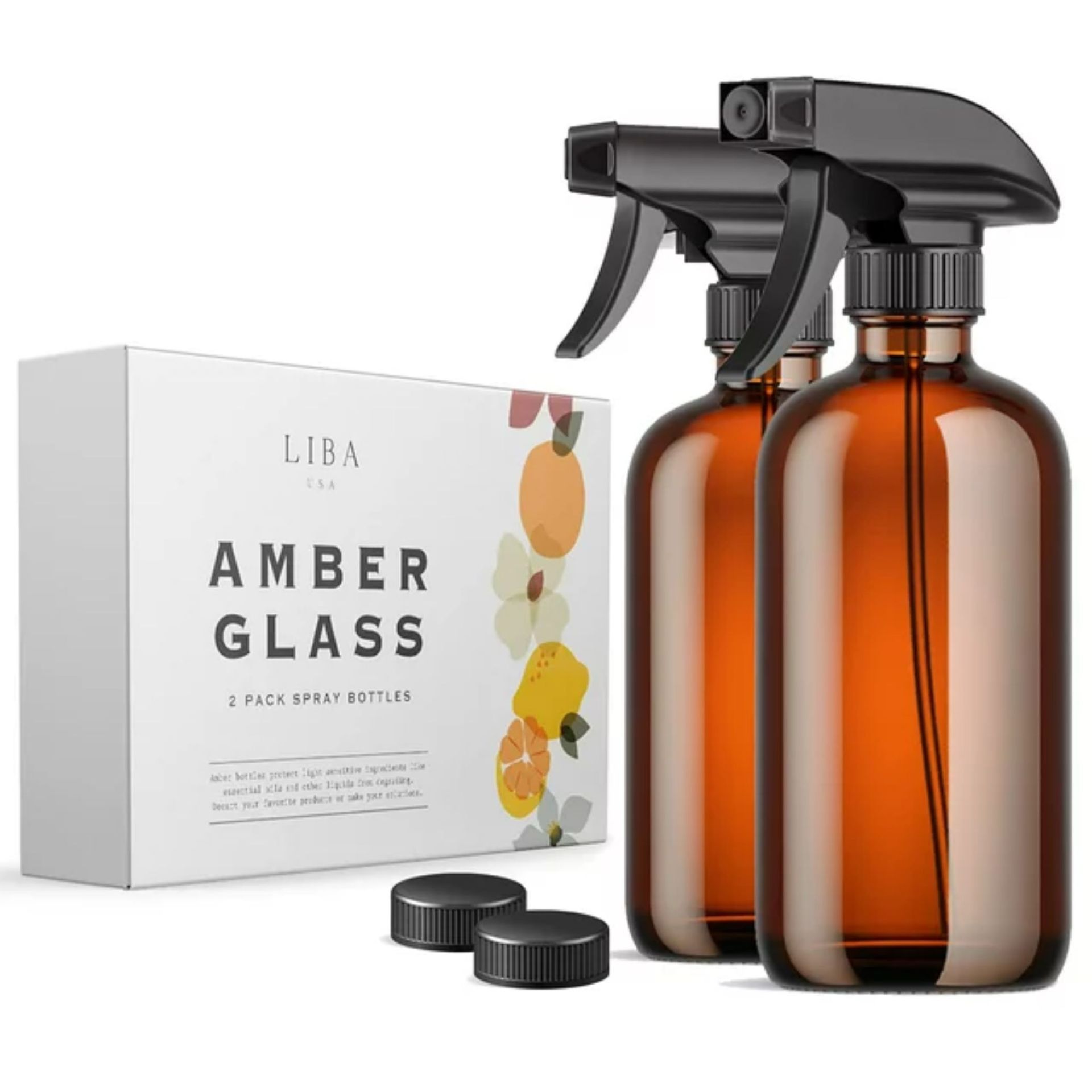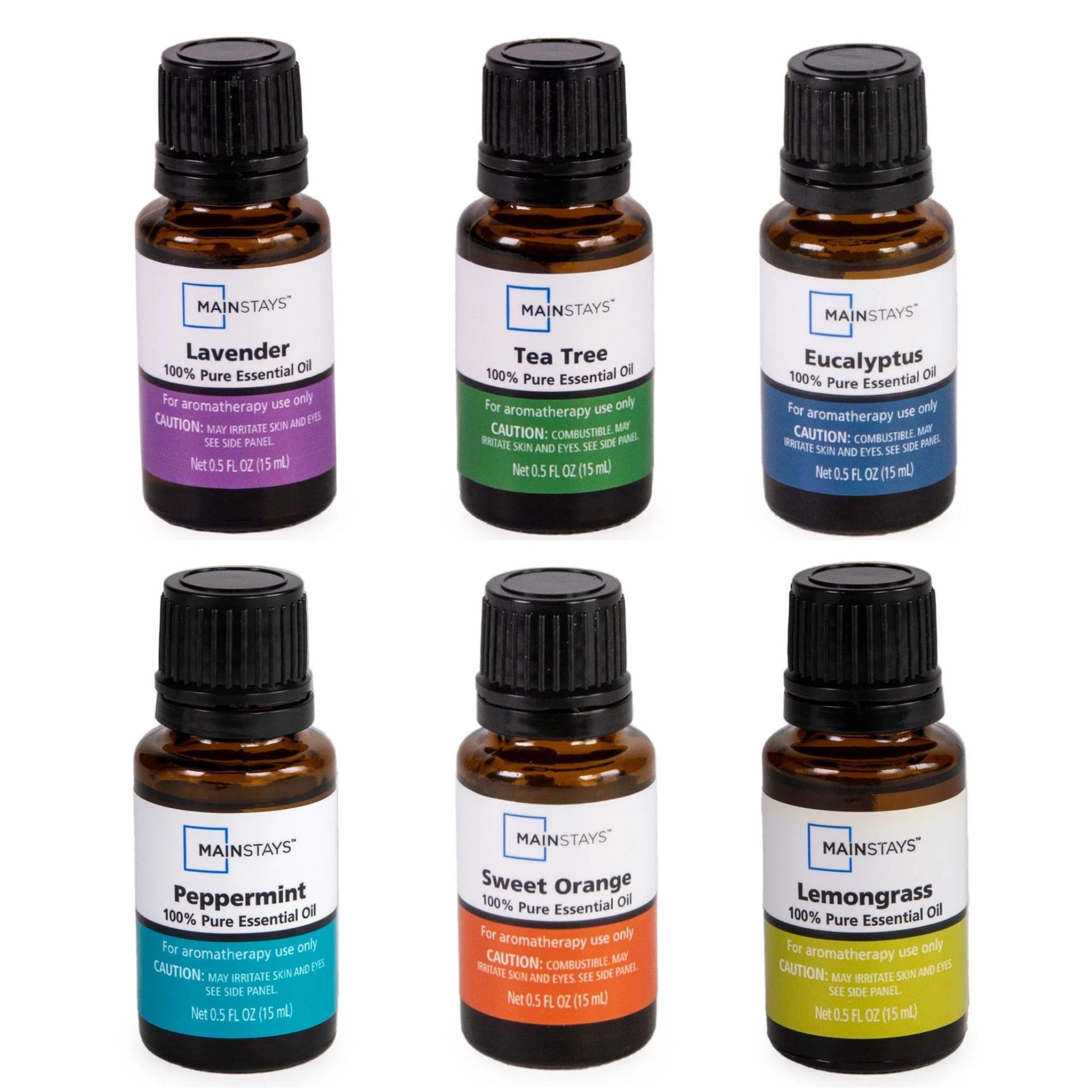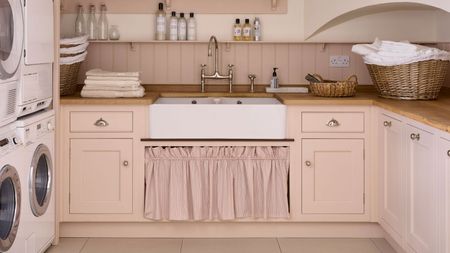Professional cleaners reveal whether natural cleaners can disinfect common household bacteria and viruses
The answer may surprise you


In 2025, we're all about cleaning green. Whether it's a spritz of vinegar, a sprinkling of baking soda, or a squeeze of lemon juice, more people than ever are ditching harsh, commercial chemicals in favor of natural alternatives.
But, while we know natural cleaners work well for tackling everyday grease and grime, do they actually disinfect common household bacteria and viruses? Our experts say yes, but only if you let them dwell long enough.
Our professional cleaners reveal it's vital to follow their cleaning tips when using natural disinfectants so that you properly banish bacteria and viruses.
Are natural disinfectants effective?
Ashley Kidder, cleaning expert and COO at Dashing Maids, says yes, they do disinfect, but with a crucial qualifier: 'When used correctly.'
If you're getting up to speed with everything you need to know about green cleaning, you may have noticed some differing discourse surrounding non-toxic, natural cleaners, and whether they're effective when it comes to disinfecting.
Ashley explains, 'As a professional in the cleaning industry, I stand by the effectiveness of natural, non-toxic cleaning supplies – not only as a safe and eco-conscious option, but also as a powerful way to disinfect when used properly.
'Natural products like cleaning with hydrogen peroxide, cleaning with vinegar, and cleaning with essential oils, like tea tree or thyme, can absolutely kill common bacteria and viruses.'
Karina Toner, cleaning expert and operations manager at Spekless, agrees with Ashley, but takes a more cautious approach. 'Not always,' she stresses. 'While some natural cleaners, like vinegar and lemon juice, have mild antibacterial properties, they do not meet EPA standards as disinfectants capable of killing a broad spectrum of bacteria and viruses.
'Natural cleaners often lack the potency and dwell time required to effectively destroy more resilient pathogens like norovirus, influenza, or COVID-19. For example, vinegar may kill some bacteria but it is not effective against viruses or bacterial spores.
'Disinfection requires a specific chemical strength and contact time, which natural options rarely meet consistently.'
So, for this reason, while you can use germ-fighting essential oils and even make your own DIY non-toxic bathroom cleaner, it might be best to rely on something stronger when cleaning when someone is ill, for example, to effectively and assuredly banish all bacteria and viruses.
How to ensure you're eliminating all bacteria and viruses when cleaning naturally
Natural cleaners can be just as effective as commercial chemicals, but only when used correctly, say pros.
If you do agree that you don't need harsh cleaning chemicals to clean well, there are luckily a few extra precautions you can take to ensure the efficacy of your natural cleaners. To Ashley, the key to making any cleaner effective is twofold.
'Clean the surface first,' she advises. 'Dirt, grime, and organic matter must be removed before disinfecting.' This can be done with a natural, non-toxic cleaning spray, such as the Seventh Generation Disinfectant Spray All Purpose Cleaner available at Walmart. Or, as Karina suggests, a simple solution of soap and water and help to physically remove dirt and debris, and reduce the microbial load present on surfaces.
Then, let the product dwell. 'Natural disinfectants need proper contact time to work,' continues Ashley. 'Simply spraying and wiping won't cut it; letting the product sit for several minutes is what actually kills germs.'
Karina adds that you can always disinfect after using a natural cleaner, using an EPA-registered disinfectant or a safe natural alternative proven to kill viruses, like hydrogen peroxide, at least 3%, or alcohol, at least 70% isopropyl, but this may feel counterproductive, or like you're simply complicating your achievable cleaning routine.
But, if you do want to change up your cleaning routine for the better, it's important to be aware of the cleaning products you should never mix, warns Karina, as 'Combining natural substances like vinegar and hydrogen peroxide can be dangerous and reduce effectiveness.
'If you want a more natural disinfectant that is effective, try the Force of Nature Multi-Purpose Cleaner available at Amazon. It uses electrolyzed water technology and is EPA-registered to kill 99.9% of germs. I've found it incredibly helpful for safe disinfecting when cleaning a kitchen or keeping a clean home when you have pets or children.'
The overall verdict? Yes, our pros both agree, natural cleaners can be just as effective as conventional options, but only when used correctly. Just be sure to avoid greenwashing when picking products.
Natural cleaning essentials
All prices were correct at the time of publication.
This bestselling, all-natural cleaning spray uses plant-based cleaning power to tackle everyday dirt, grease and grime, and is suitable for almost all non-porous surfaces, including tile, stone, wood and glass.
These eco-friendly, glass spray bottles are ideal for mixing up homemade cleaning solutions, with UV-protection to prevent ingredients from degrading in natural light.
Experiment with cleaning and scenting with this six pack of bestselling essential oils, which includes peppermint, tea tree, and sweet orange.
Meet our experts

Based in the Washington D.C. region, Spekless offers various services from move-out cleaning to Airbnb cleaning, often utilizing natural disinfectants for an effective, eco-friendly clean. Karina is an experienced professional cleaner, and uses many natural cleaning methods both at home and in clients' homes.

With over a decade of hands-on experience, Ashley is an expert in sustainable, effective home care, specializing in practical, non-toxic cleaning solutions that protect both people and the planet.
FAQs
When should you not use vinegar to clean?
While vinegar is a great eco-friendly cleaning solution and at certain concentrations*, an effective disinfectant, it's important to know what not to clean with vinegar. For example, porous surfaces like stone are best cleaned with specific products, such as the Weiman Disinfectant Granite Daily Clean & Shine available at Amazon.
*According to a study published by The National Center for Biotechnology, results showed a 'disinfecting effect of acetic acid in a concentration of 10% and in the presence of 1.5% citric acid against a variety of microorganisms.... Furthermore, the results showed a considerable antimicrobial effect of acetic acid when used in domestic laundry procedures.'
Does baking soda disinfect?
We do recommend cleaning with baking soda, but, while it may reduce bacteria, it doesn't work in the same way as commercial disinfectants.
or true disinfecting, you'll need something specifically designed to be fit for purpose, such as the CleanSmart Daily Surface Cleaner and Pet-safe Disinfectant available at Amazon.
When being more conscious about your impact on the environment, it's also important to implement some cleaning tricks to reduce plastic waste at home.
Sign up to the Homes & Gardens newsletter
Design expertise in your inbox – from inspiring decorating ideas and beautiful celebrity homes to practical gardening advice and shopping round-ups.

Ottilie joined Homes & Gardens last year, after finishing a Master's in Magazine Journalism at City, University of London. With previous contributions in Livingetc and Motorsport Magazine, she produces content for the Solved section on the website, focusing on clever tips and tricks to keep your home beautiful, organized and clean. She also has a Master's degree in English Literature and History of Art from the University of Edinburgh, where she developed a love for inspiring interiors and architecture.
You must confirm your public display name before commenting
Please logout and then login again, you will then be prompted to enter your display name.
-
 Cistus varieties – 11 joyful sunroses to brighten your plot
Cistus varieties – 11 joyful sunroses to brighten your plotOur top cistus varieties are perfect for adding summer color to hot, dry and well-drained borders and pots
. -
 I'm chronically ill – this 1 simple low-energy daytime bedroom hack stops pet hair and dander from triggering my allergies at night
I'm chronically ill – this 1 simple low-energy daytime bedroom hack stops pet hair and dander from triggering my allergies at nightIt reduces the need daily bedding changes
-
 This $50 gadget tests your air quality for allergens, pollutants and harmful smoke – as a home tech editor, it's a must-have for all
This $50 gadget tests your air quality for allergens, pollutants and harmful smoke – as a home tech editor, it's a must-have for allAn air quality monitor will detect harmful air particles in your home
-
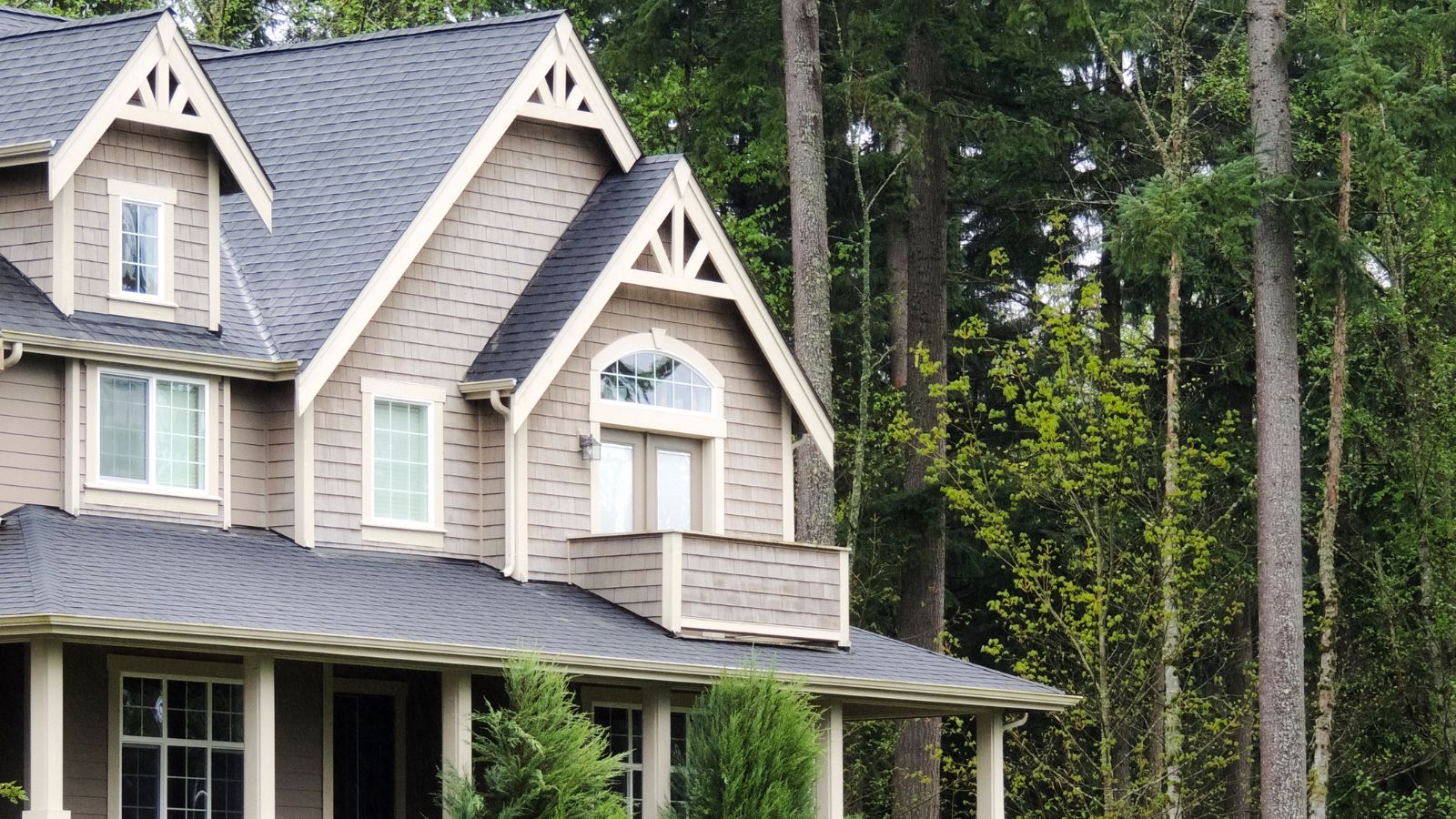 Can you paint a metal roof? Experts warn this could make or break your ‘worthy’ DIY efforts
Can you paint a metal roof? Experts warn this could make or break your ‘worthy’ DIY effortsDone right, it'll improve energy efficiency and avoid corrosion
-
'They are not designed to be storage' – experts warn you should never store these 5 things on your washer or dryer
You'll run the risk of fire or damage to your appliance
-
 This $5 hack can cut your water bill in half and vastly improve your water pressure – it's perfect for renters and homeowners alike
This $5 hack can cut your water bill in half and vastly improve your water pressure – it's perfect for renters and homeowners alikeA faucet aerator can improve flow, reduce water, and help with washing up
-
What are gutter guards, and do they really work? Roofing experts reveal these mean 'less to worry about', including mold and pests
They also help prevent water-related damage
-
5 surprisingly practical ways to re-purpose old bed sheets for cleaning, decluttering and storage at home
Don't ditch worn-out bedding – there's life in them yet
-
Do you need to turn the lights off when you leave a room? Experts have ended this time-honored debate once and for all
On or off? We delve into the details of this age-old dispute
-
I tried the baking soda trick to quickly and naturally clean my outdoor rug – it’s now set for Easter outdoor hosting
Baking soda is perfect for lifting dirt and debris
